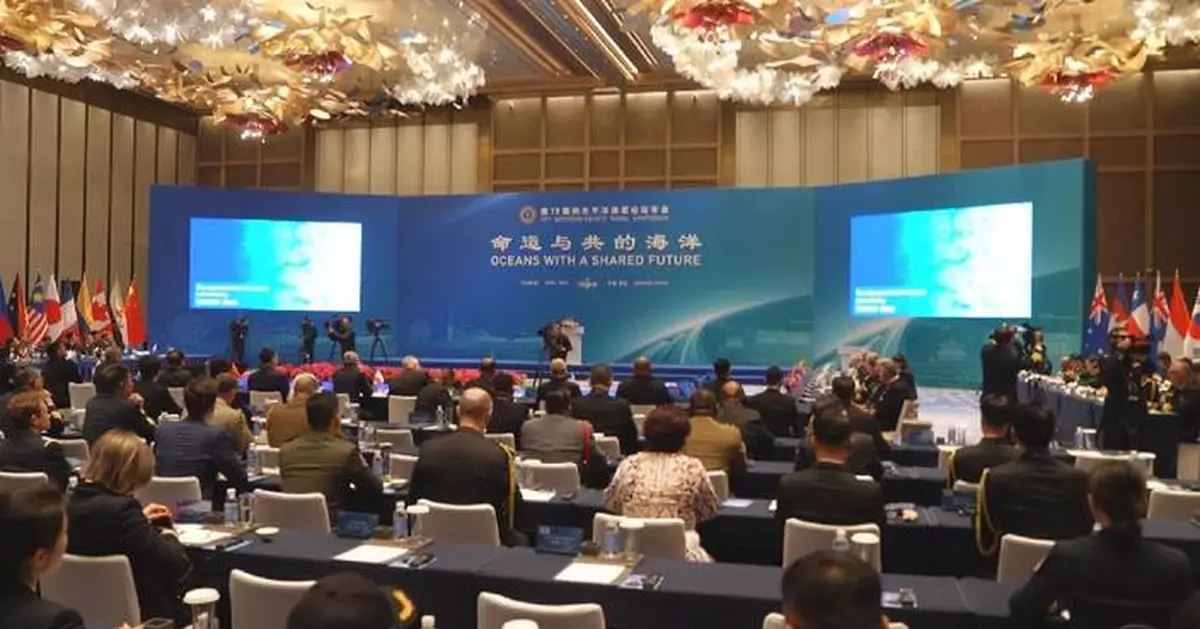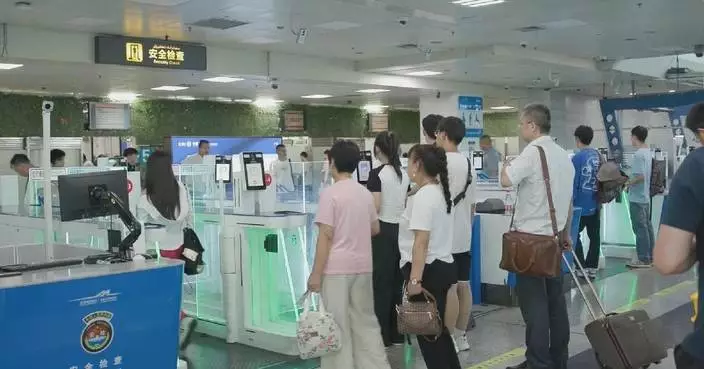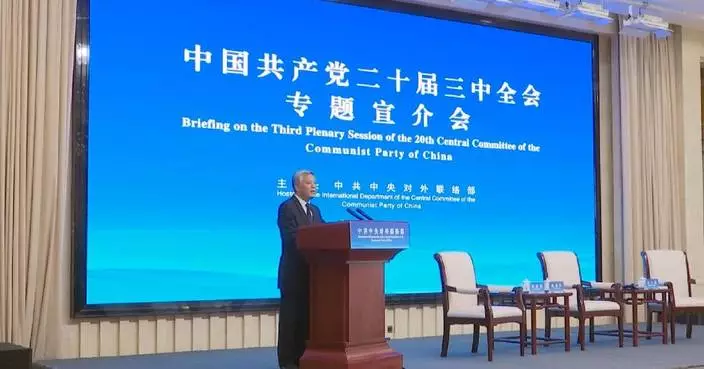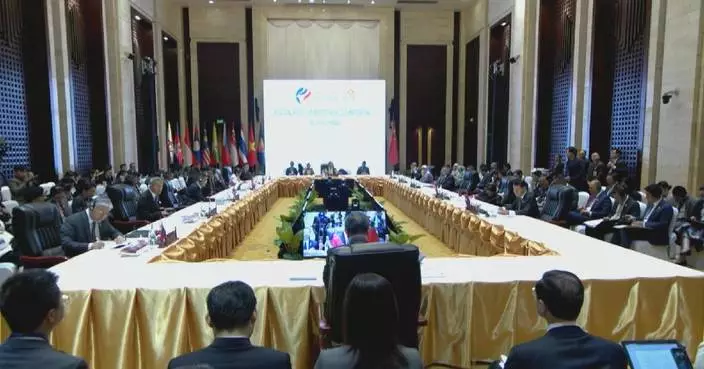The first plenary meeting of the 19th Western Pacific Naval Symposium (WPNS) was held on Monday in the port city of Qingdao, east China's Shandong Province, following an opening ceremony of the event.
At the plenary meeting, participants deliberated and voted on the charter of the symposium, the "Code for Unplanned Encounters at Sea" and the "Applications of Unmanned Systems" among other agenda items.
The Code for Unplanned Encounters at Sea, endorsed during the 14th WPNS hosted by the Chinese Navy in Qingdao in April 2014, provides safety procedures and maneuvering instructions for naval ships and naval aircraft in unplanned encounters at sea. It aims to mitigate maritime risks and minimize the occurrence of maritime incidents.
A seminar for high-level naval officials of participating countries will be held on Tuesday.
Prior to the official inauguration of the meeting, Chinese naval officials held a series of bilateral talks with their foreign counterparts on Sunday afternoon.
Themed "Oceans with a Shared Future," the four-day meeting attracted over 180 navy representatives from 29 countries. Some delegations said they started relevant preparations upon arrival in the early morning, as everyone hopes to make full use of this platform to carry out cooperation and exchanges.
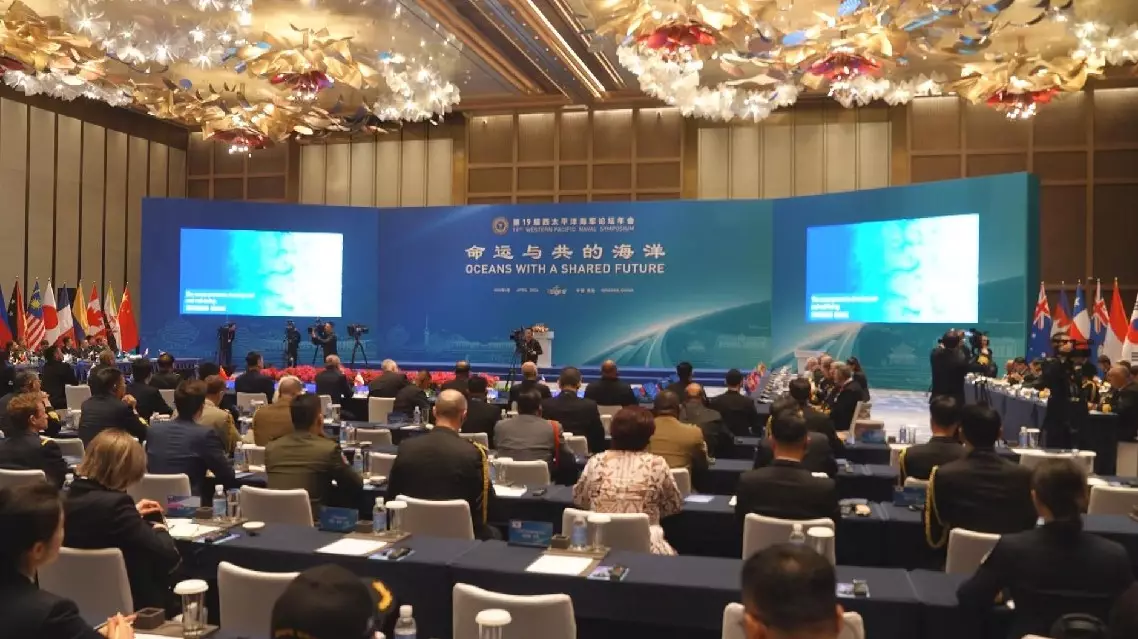
First plenary meeting of 19th Western Pacific Naval Symposium held in Qingdao
On his second official visit to China, Prime Minister of the Republic of Vanuatu Charlot Salwai expressed admiration for China's remarkable ability to balance preserving its cultural heritage with embracing innovative transformation.
Salwai paid an official visit to China from July 7 to 12. During his trip, he toured the southern province of Guangdong and explored the megacities of Beijing and Shanghai. His visit included tours of high-tech companies, a ride on a high-speed train, and a performance of traditional Cantonese opera.
In an interview with China Central Television Network (CCTV) aired on Friday, Salwai recounted his journey starting with a warm welcome that included enjoying Beijing Roast Duck, also known as Peking Duck -- a culinary delight introduced to him by the Chinese ambassador in Vanuatu.
"Many had to say. Peking Duck. Because we had it here on our arrival, so it was very tasty. And I understand that the Chinese ambassador in Vanuatu brought us to one of the traditional restaurants, small but beautiful," he said. The prime minister sees China's preservation of its culture as a vital lesson in understanding one's roots and the journey to the present day, acknowledging China's efforts to integrate cultural preservation with modernization.
"It's going to be my second official visit to China. I'm always impressed to see big changes and especially innovations made by China and especially the cities. Because a big impression is to see how China continues to maintain and keep its culture. Because I think it's the basis of everything -- to know where you come from and to understand where we are today. I feel that China is doing a lot to maintain its culture, but at the same time, doing, innovating to transform its culture,” Salwai said.
He also emphasized the importance of learning from China's sustainable development strategies.
"Today, it comes from a long way, some hardship, the government, and also the people of China. So, I'm impressed to see what is done, especially how China associates infrastructure development with nature. That's meant to keep, continue to keep the environment. It takes effort with the climate change by maintaining the ecosystem. I think it's something that, for a small country like Vanuatu, is important to learn. So, we are here. I'm here with my delegation to learn," Salwai said.

Vanuatu's PM commends China's cultural preservation, innovation amid fast growth



